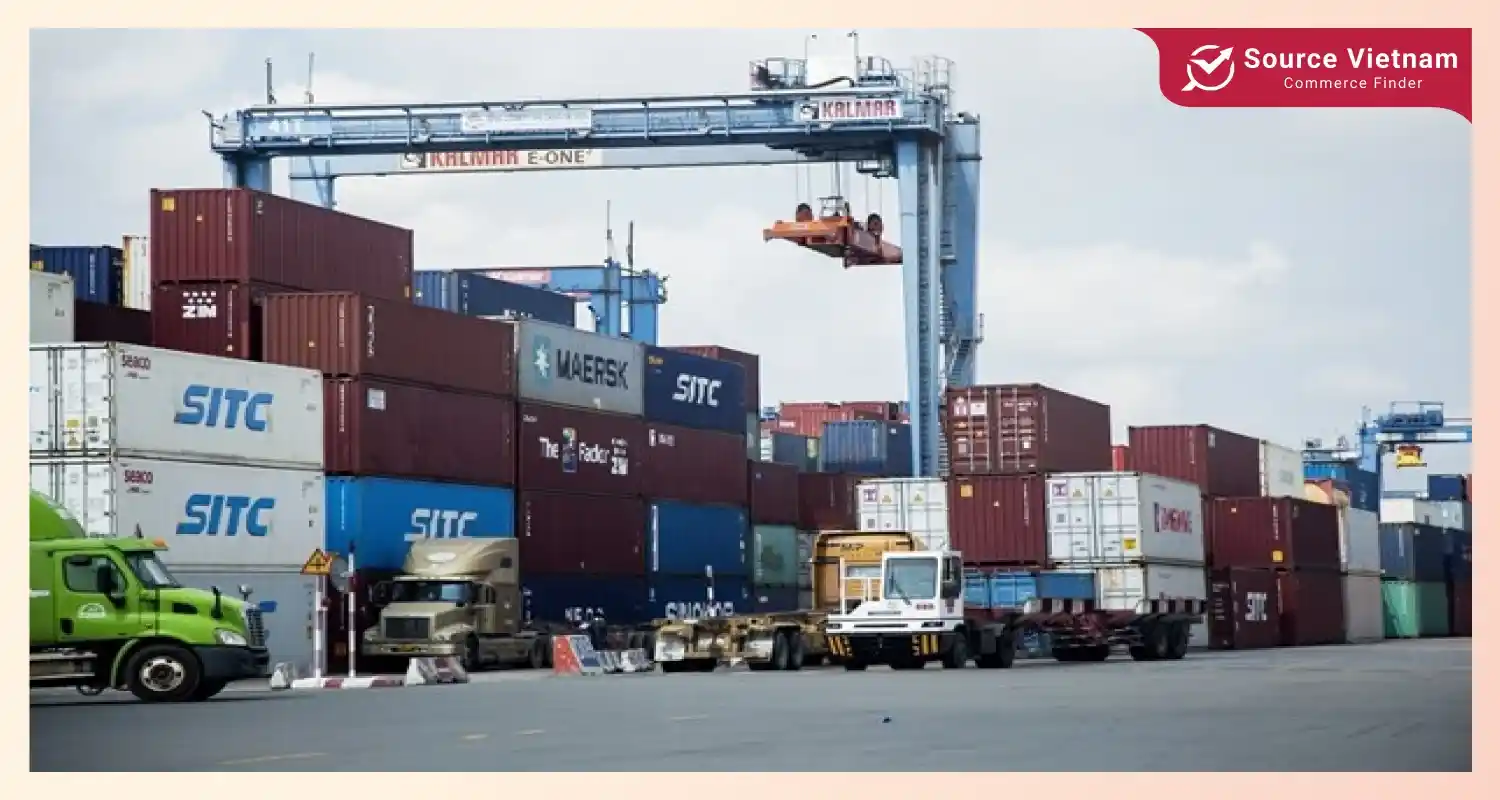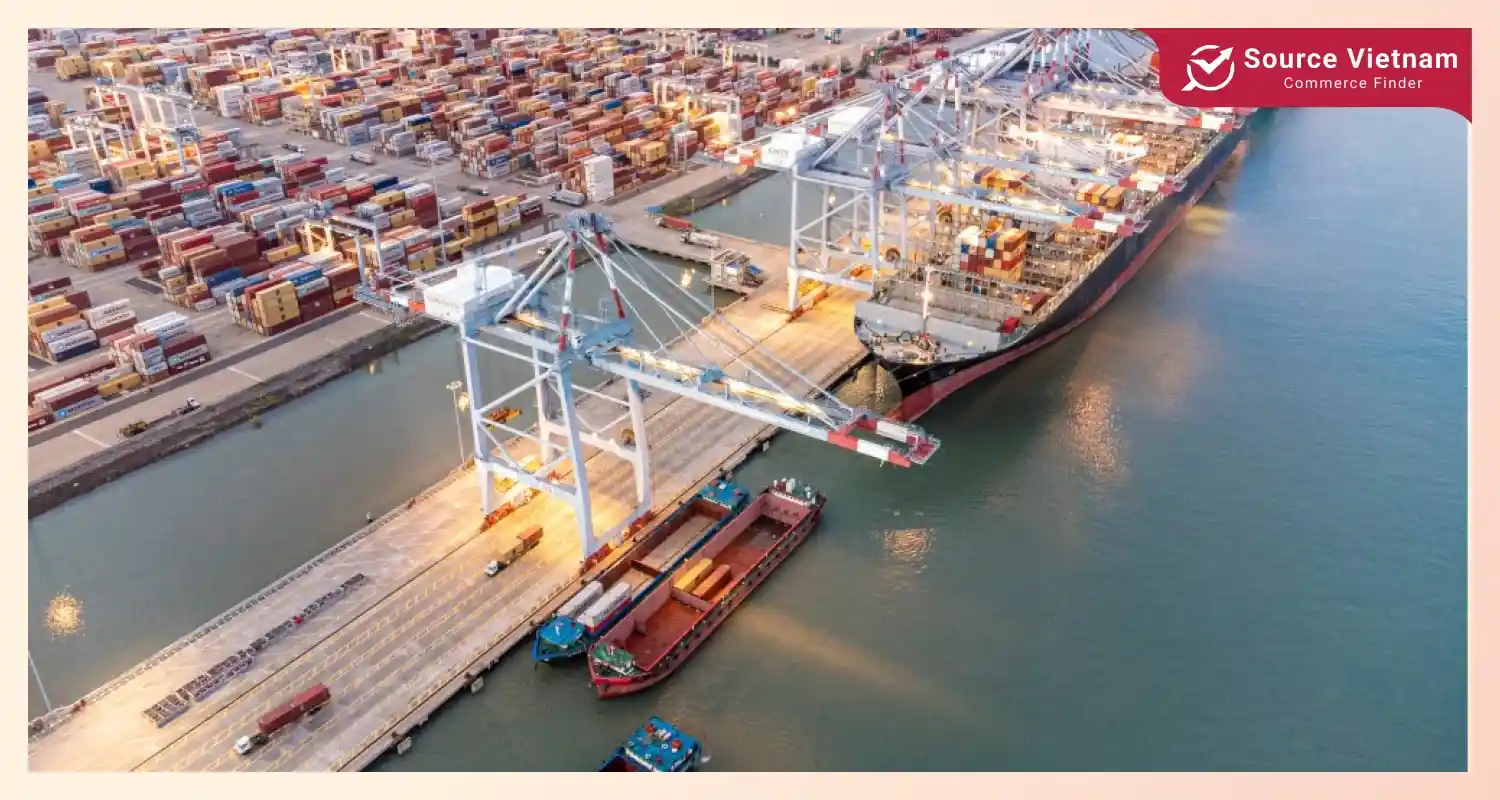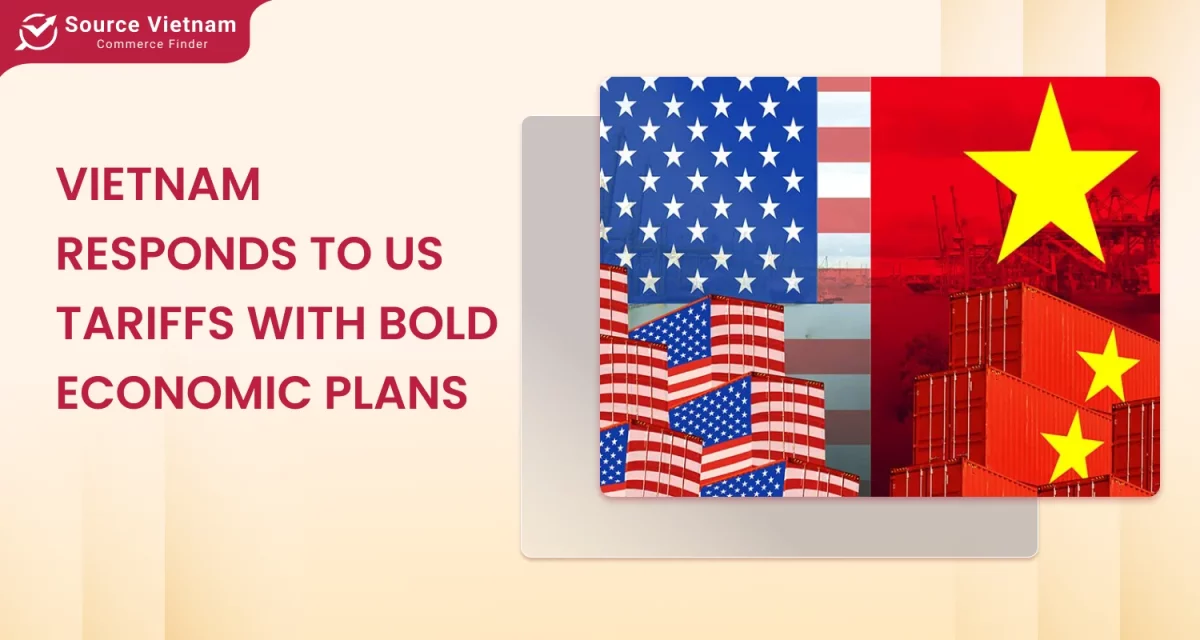Insight:
- Trade cooperation between Vietnam and the US is growing stronger, with exports projected to reach 125-130 billion by 2025.
- Vietnam is diversifying its exports to the US, ranging from agricultural products and textiles to high-tech goods, contributing to strong trade growth between the two countries.

Potential partnership between Vietnam and the US
The United States stands out as the leading exporter to Vietnam, contributing billions in actual trade. As one of Vietnam’s largest and most significant trading partners, the trade volume reached $135 billion by the end of November 2024. During this period, Vietnam’s exports approached $123 billion, marking a 23% increase, while imports from the US totaled around $12 billion, reflecting a 15% rise.

Vietnam’s main exports to the US include coffee, cashew nuts, pepper, rice, clothing, footwear, seafood like shrimp and basa fish, and electronic components. These products are crucial in supplying goods worldwide.
The United States has now solidified itself as one of the most significant foreign investors in Vietnam. Its visible projects include investments like that of Intel ($1.5 billion) and Amkor ($1.6 billion) aside from extending the operations of other big technology companies such as Synopsys, Nvidia, and Marvel.
In the third quarter of 2024, foreign direct investments (FDI) in Vietnam reached a staggering $27.78 billion, an increase of 11.6 percent over the previous year. It is part of America’s undeterred support for strengthening Vietnam in high-tech development and digital transformation areas.
Read more >>> Understanding Vietnam’s On-Spot Import and Export Regulations
Expected exports to exceed $404 billion

That reflects the observation by the General Department of Customs (Ministry of Industry and Trade) that by 2024, a resurgence in import and export activity took place and greatly impacted the economy. International geopolitical conflicts persist, with other countries suffering from political instabilities, including economic impact. However, Vietnam has continued to grow positively under the strong and decisive leadership of the government.
Export turnover grew significantly, driven by the strong recovery of key export products. The total export value in 2024 is projected to exceed $404 billion, representing a year-on-year increase of approximately 14%.
Notably, the export of processed industrial products surged by 14.7%, with remarkable growth in computers, electronics, and components; machinery, equipment, tools, and parts; and wood and wood products, all exceeding 20%.

Moreover, the export of textiles, footwear, and seafood rebounded strongly, surpassing a 10% growth rate. The export of fruits and vegetables also experienced a substantial increase of over 20%.
The General Department of Customs reported that most export markets have rebounded and experienced robust growth, particularly those with which Vietnam has FTAs. The trade surplus has reached over $24 billion, bolstering economic growth and macroeconomic stability. Strikingly, export growth has been high among foreign-invested and domestic enterprises. Domestic exporters earned $105.5 billion in exports, which is a 19.5% increase, even higher than the growth rate of the FDI sector.

The General Department of Customs has forecast that Vietnam’s import-export activities will continue to experience much uncertainty and risk in 2025. Regarding the global economic landscape, the Department said that the US Federal Reserve would only have two interest rate cuts slated for 2025 after reducing it by one percentage point since September. Besides, the ongoing crisis in the Middle East has disrupted the flow of cargo transportation worldwide and in Vietnam.
As increasing protectionism and newly engaged regulations like the Carbon Border Adjustment Mechanism in the European Union and Deforestation Regulation continue, it will create many difficulties around the most important items in Vietnam’s exports. Sustainable requirements according to developed markets combined with the uncertainties prevalence related to trade policies of major economies such as the United States under a new government make exporting terrain very complicated and volatile.
Outstanding export items

The textile industry is expected to reach $25 billion, driven by increasing demand for high-quality, eco-friendly products. With the potential for thriving growth, the handicraft wood industry is likely to reach a $10 billion increase of more than 20% compared to 2024. The trend of sustainable and recycled furniture consumption throughout America is still a primary driving factor for this sector.
Furthermore, high-tech products, including electronic components and telecommunications equipment, are poised to experience significant growth of 15-18%, driven by increased production from major corporations like Samsung, Intel, and LG.

About $7 billion is anticipated from the agriculture and seafood industry, particularly shrimp, catfish, and cashew nuts. Another strong-driving reason will be the capacity of that sector to meet stringent US food safety standards. Such commodities as rubber and steel are considered to show stable growth, providing a reliable supply for the US manufacturing sector.
Some points to pay attention to in the market
The Bilateral Trade between Vietnam and the United States will be boosted by the forecast from the Vietnamese Trade Office regarding the economic increases between Vietnam and the United States. Vietnam will expect an excellent export value ranging between $125 billion and $130 billion in 2025.

However, to sustain this high export level, Vietnamese exporters must adapt to new US policy requirements, increase investments in technology and innovation, enhance product quality, and comply with international regulations.
Vietnam must be ready to tackle possible trade barriers, particularly for products with low value-added and high import content. A major concern is the threat of trade measures like anti-dumping or countervailing duties. By building on the solid foundation of its comprehensive strategic partnership and taking advantage of global trends, Vietnam’s exports to the US in 2025 will bring significant economic benefits while strengthening Vietnam’s position as a crucial player in the worldwide supply chain.
Conclusion
Vietnam can hit its export target of $125-130 billion to the US by 2025, supported by its existing strengths and the ongoing dedication of its businesses. To realize this ambition, companies must actively respond to market shifts, enhance their competitive edge, and diversify their product offerings. In addition, the government should continue to create a supportive business environment and assist companies in overcoming trade barriers and utilizing free trade agreements effectively.















